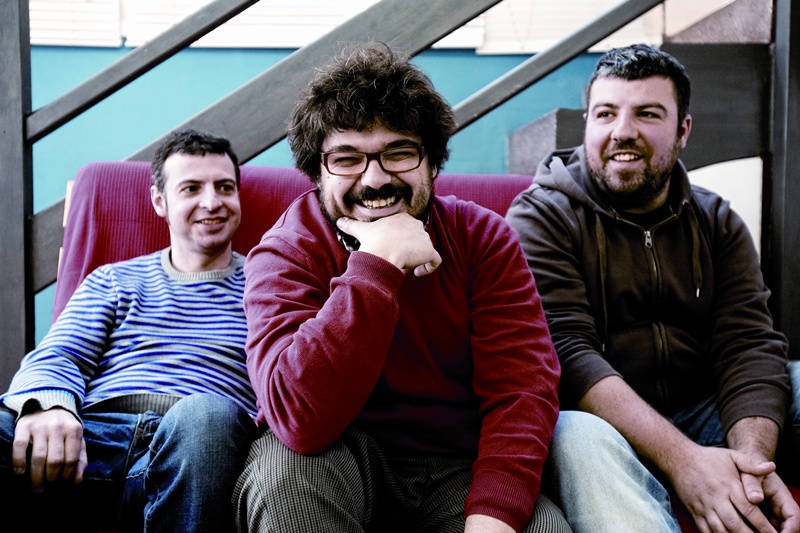They say that even José Luis Rodríguez Zapatero, towards the end of his term as Spanish prime minister, went onto YouTube to see Españistán. Este país se va a la mierda (or “Spanistan, This Country is Going to the Dogs”), the video animation (there is also a paper version with the same title published by Glenat) in which the cartoon illustrator Aleix Saló (born in 1983) used a corrosive and cutting style to explain the source of the financial crisis that has been affecting us for too long now. It became an internet hit that positioned him as one of the great up-and-coming players in the world of comic-strips and illustration in Catalonia. However, this young artist only sees this success as the starting point for many projects he wants to do in the future: “I love my job; sometimes I think I love it too much. In recent years, I’ve had so many financial problems that I often didn’t even have enough for food, but I can’t do anything other than draw.”
He says that his generation is one of choppers and changers, people with very diverse interests, and maybe that’s why he didn’t grow up thinking he wanted to be an illustrator: “But I’m from a town, Ripollet, which, although its arts facilities are non-existent, does have a group of very active people who, among many other things, publish a weekly magazine.” It was in that local publication that, at the tender age of 15, he started publishing his first cartoons, which already reflected his penchant for analysing current affairs in a somewhat satirical tone. In those early years, he combined those comic strips with an architecture degree. “It took me six years to do three years of the course!”, Saló, who is now a long-standing Barcelona resident, admits. “I loved the course, but you have to put all your time into it, although it’s no harder than other courses. Back then, I was living in Sabadell, working in Ripollet and studying in Sant Cugat. I couldn’t keep up with it all.”
However, as he says, he had a stroke of luck and won the Carnet Jove comic strip competition, which allowed him to publish his first book and devote himself exclusively to drawing. A little later, Españistán came out, which he describes as the product of a certain mood, “of the times I spent reading websites like meneame.net or burbuja.info, which give you a grasp of what people are thinking. That term, ‘Españistán’, has been used on the more critical internet forums for some time to refer to the need we’ve felt to prove that we are a rich, first-world country, which we are not.”
With the same scathing pen, Saló has once again aimed and fired, with irony and causticity, at those he considers responsible for the financial crisis, in his new work Simiocràcia. Crònica de la gran ressaca econòmica (Ape-ocracy. Chronicle of the Big Economic Hangover), published by Debolsillo. Is he the preferred illustrator of the Indignant movement? “Some have said that, but that label is totally undeserved. All I do is research and make comic strips about the economic situation. And while I am sympathetic to the movement, I never even set foot in the 15-M camp on Plaça de Catalunya. I was at home, working. I don’t want to fight the system. I just want things to get better.”





